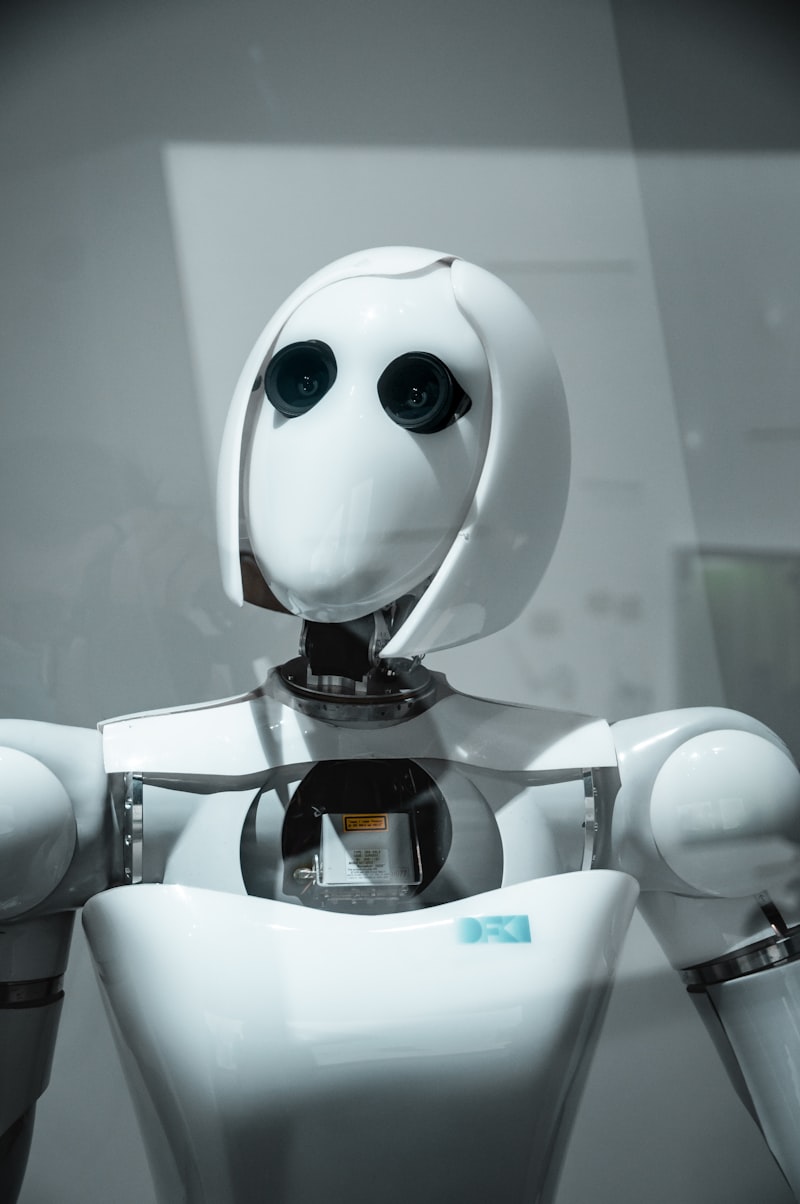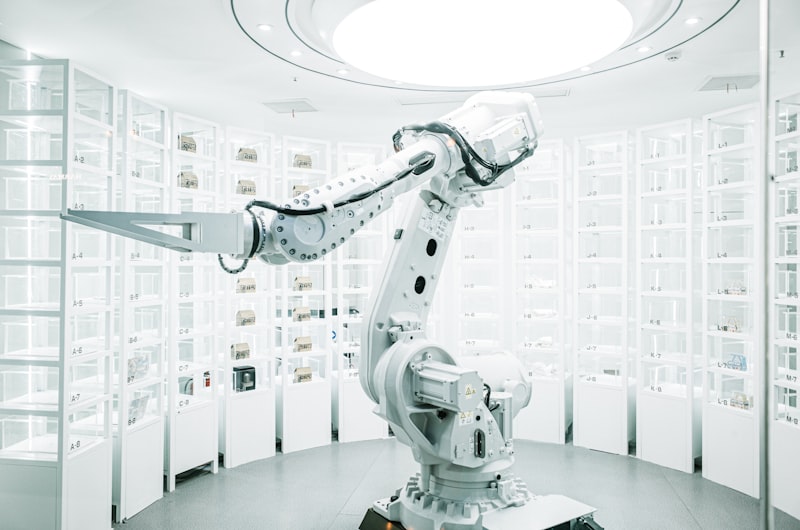How Is AI Enhancing Voice Recognition Technology?
Voice recognition technology, once a novelty, has now become an integral part of our daily lives. From virtual assistants like Siri and Alexa to the voice-to-text feature on your smartphone, AI has significantly enhanced the accuracy and functionality of these systems. But how exactly does AI make voice recognition so effective?
At its core, AI algorithms analyze vast amounts of data to improve their understanding of human speech patterns and nuances. Imagine AI as a diligent student, constantly learning and adapting to different accents, languages, and even individual voices. This continuous learning process enables voice recognition systems to become more accurate over time, making fewer errors and providing a smoother user experience.
One of the key advancements AI brings to voice recognition is natural language processing (NLP). NLP allows machines to interpret and respond to human language in a way that feels natural and conversational. This means that when you ask your virtual assistant a question or give a command, it can understand the context and intent behind your words, rather than just matching keywords.


AI’s impact on voice recognition technology is profound and multifaceted. It’s not just about understanding what we say; it’s about understanding us better than ever before. As AI continues to evolve, we can expect voice recognition technology to become even more intuitive, reliable, and seamlessly integrated into our daily lives.
AI Breakthroughs: Revolutionizing Voice Recognition Technology
Voice recognition technology, powered by AI, has evolved from basic commands to understanding natural language with remarkable accuracy. It’s no longer just about asking Siri or Alexa to set a timer; now, you can ask complex questions and receive nuanced answers in return. This advancement is akin to teaching a computer to understand tones, nuances, and even regional dialects—making it feel more human-like than ever before.
The secret behind this leap lies in deep learning algorithms. These algorithms allow machines to learn from vast amounts of data, constantly improving their ability to interpret speech patterns. Just like a child learns to speak by listening and practicing, AI systems refine their skills over time, becoming adept at recognizing voices in noisy environments or understanding multiple languages effortlessly.
Think of it this way: AI voice recognition is like having a personal assistant who not only listens attentively but also comprehends your every word. Whether you’re dictating messages while driving or instructing your smart home devices, AI understands context and intent, ensuring a seamless user experience.
Moreover, these advancements extend beyond personal convenience. Industries such as healthcare, finance, and customer service are integrating AI voice recognition to enhance efficiency and accuracy. Doctors can dictate patient notes hands-free, bankers can verify identities securely, and businesses can offer personalized customer interactions—all thanks to AI’s ability to understand and respond to spoken language.
The Future of Speech: AI’s Role in Advancing Voice Recognition
Imagine waking up in the morning and simply telling your smart home assistant to start brewing your coffee and turning on the news. AI-powered voice recognition systems, like those developed by companies such as Google and Amazon, are making this futuristic scenario a reality. These systems are becoming increasingly adept at understanding natural language commands, thanks to machine learning algorithms that continuously improve based on vast amounts of data.
The key to AI’s success in voice recognition lies in its ability to mimic human speech patterns and understand context. This isn’t just about recognizing words; it’s about understanding intention and tone. For example, AI can now differentiate between someone asking a question and someone giving a command, adjusting its responses accordingly.
But AI’s impact on voice recognition goes beyond convenience. It’s transforming industries like customer service and healthcare, where accurate communication is crucial. Imagine a medical professional dictating notes directly into a patient’s electronic health record using voice commands, or a call center using AI to route customer calls more efficiently based on spoken requests.
As AI continues to learn and adapt, its potential to enhance voice recognition technologies will only grow. This means more personalized user experiences, increased accessibility for individuals with disabilities, and even greater integration of voice commands into everyday devices. The future promises a world where talking to technology isn’t just commonplace—it’s intuitive, seamless, and as easy as having a conversation with a trusted assistant.
From Words to Understanding: AI’s Impact on Voice Recognition Systems
Imagine this: you speak into your phone, asking it to find the nearest coffee shop. Within seconds, it responds with a list of options tailored to your location. That’s the magic of AI in voice recognition. It’s not just about recognizing words anymore; it’s about understanding the nuances of human speech.
AI has revolutionized voice recognition by enabling machines to interpret and respond to natural language. Unlike older systems that relied on rigid commands, AI systems can decipher context, tone, and even intent from spoken words. This means they can handle complex queries and adapt to different accents and languages with surprising accuracy.
Think of AI as a savvy interpreter between human language and computer code. It listens to your words, breaks them down into patterns, and matches these patterns with vast datasets to figure out what you mean. It’s like teaching a child to understand language nuances—it gets better with practice and exposure.
The impact of AI on voice recognition goes beyond convenience. It’s paving the way for more inclusive technology, allowing people with disabilities to interact with devices more naturally. For instance, someone visually impaired can now navigate their smartphone solely through voice commands, opening up a world of possibilities.
Moreover, businesses are leveraging AI-powered voice recognition to enhance customer service. Automated systems can handle customer inquiries promptly and accurately, freeing up human agents for more complex tasks. It’s efficiency with a human touch.
As AI continues to evolve, so will voice recognition systems. They’ll become more intuitive, more responsive, and perhaps one day, as natural as chatting with a friend. So next time you ask your phone for directions or the weather forecast, remember: behind the scenes, AI is turning your words into action with remarkable precision.
Machine Learning Meets Speech Recognition: AI’s Transformative Influence
Imagine a world where your voice becomes the ultimate tool for interacting with technology. Thanks to advancements in Machine Learning (ML) and speech recognition, that world is rapidly becoming our reality. From virtual assistants understanding your commands to transcribing spoken words into text with startling accuracy, the marriage of ML and speech recognition is reshaping how we communicate and interact with devices.
At its core, machine learning is the powerhouse behind the scenes, enabling computers to learn from data and improve over time without explicit programming. When applied to speech recognition, this means algorithms can analyze patterns in speech, understand accents, and even adapt to individual speaking styles. The result? Speech recognition systems that are not just accurate but intuitive, capable of understanding context and intent.
Think about how far we’ve come from the early days of basic voice commands. Now, AI-powered assistants like Siri, Alexa, and Google Assistant can comprehend natural language queries, respond in real-time, and perform tasks ranging from setting reminders to controlling smart home devices. It’s like having a conversation with a knowledgeable friend who anticipates your needs before you even express them.
But the impact goes beyond convenience. Businesses are leveraging ML-driven speech recognition to streamline customer service with automated call centers that can resolve queries faster and more accurately than ever before. Healthcare professionals are using it to transcribe patient notes swiftly, improving documentation accuracy and freeing up time for patient care.
In education, speech recognition technology is aiding in language learning by providing instant feedback on pronunciation and fluency. Students can practice speaking a new language and receive immediate corrections, enhancing their learning experience through personalized interaction.
Looking ahead, the fusion of machine learning and speech recognition promises even more transformative applications. Imagine cars that understand and respond to verbal commands for navigation or safety alerts, or devices that assist individuals with disabilities by interpreting sign language or facilitating communication in noisy environments.
Beyond Accuracy: AI’s Next-Level Enhancements in Voice Recognition
AI’s advancements in voice recognition go beyond mere accuracy. They are paving the way for intuitive interactions that mimic human-like understanding. This means your virtual assistant can discern not just the words spoken but also the context and nuances behind them. It’s like having a conversation with a friend who knows you inside out.
One of the most impressive enhancements AI brings to voice recognition is its ability to learn and adapt in real-time. Just like how humans improve through experience, AI algorithms can now refine themselves with every interaction. This continual learning process means your voice assistant gets better at understanding your preferences, speech patterns, and even your mood over time.
Moreover, AI-powered voice recognition is becoming more personalized. It can differentiate between voices, which means it can tailor responses and actions based on who is speaking. This level of personalization makes interactions smoother and more relevant to individual users, enhancing user satisfaction and efficiency.
Think of AI in voice recognition as a sophisticated orchestra conductor, coordinating various elements seamlessly. It integrates natural language processing, machine learning, and predictive analytics to deliver responses that are not just accurate but also intuitive and timely. It’s like having your own personal assistant who knows exactly what you need and when you need it.
The applications of advanced voice recognition are vast and growing. From smart homes that adjust to your preferences automatically to healthcare systems that can transcribe medical notes accurately, AI is revolutionizing how we interact with technology through voice.
Unlocking Potential: AI’s Innovative Techniques in Voice Recognition
Voice recognition, once a futuristic concept, is now a seamless part of everyday life. AI algorithms have become adept at interpreting human speech patterns, understanding accents, and even context. This means you can ask your virtual assistant for weather updates, set reminders, or play your favorite music with just a few words – and it understands you perfectly.
What’s truly fascinating is how AI learns and improves over time. Much like a child learning to speak, AI systems are trained with vast amounts of data to recognize speech patterns and nuances. Through machine learning, these systems continuously refine their understanding, becoming more accurate and responsive with each interaction.
Imagine AI as a diligent student in a language class, soaking up information and applying it in real-time. It’s not just about recognizing words; AI understands the subtle cues in your voice – the tone, the emphasis, the intent behind your commands. This deep understanding allows for a more natural and conversational interaction between humans and machines.
Moreover, AI’s voice recognition isn’t confined to just one language or accent. It’s versatile enough to comprehend various languages and dialects, breaking down barriers and making technology accessible to more people around the globe. Whether you’re speaking English in New York or Mandarin in Beijing, AI can understand you with impressive accuracy.
